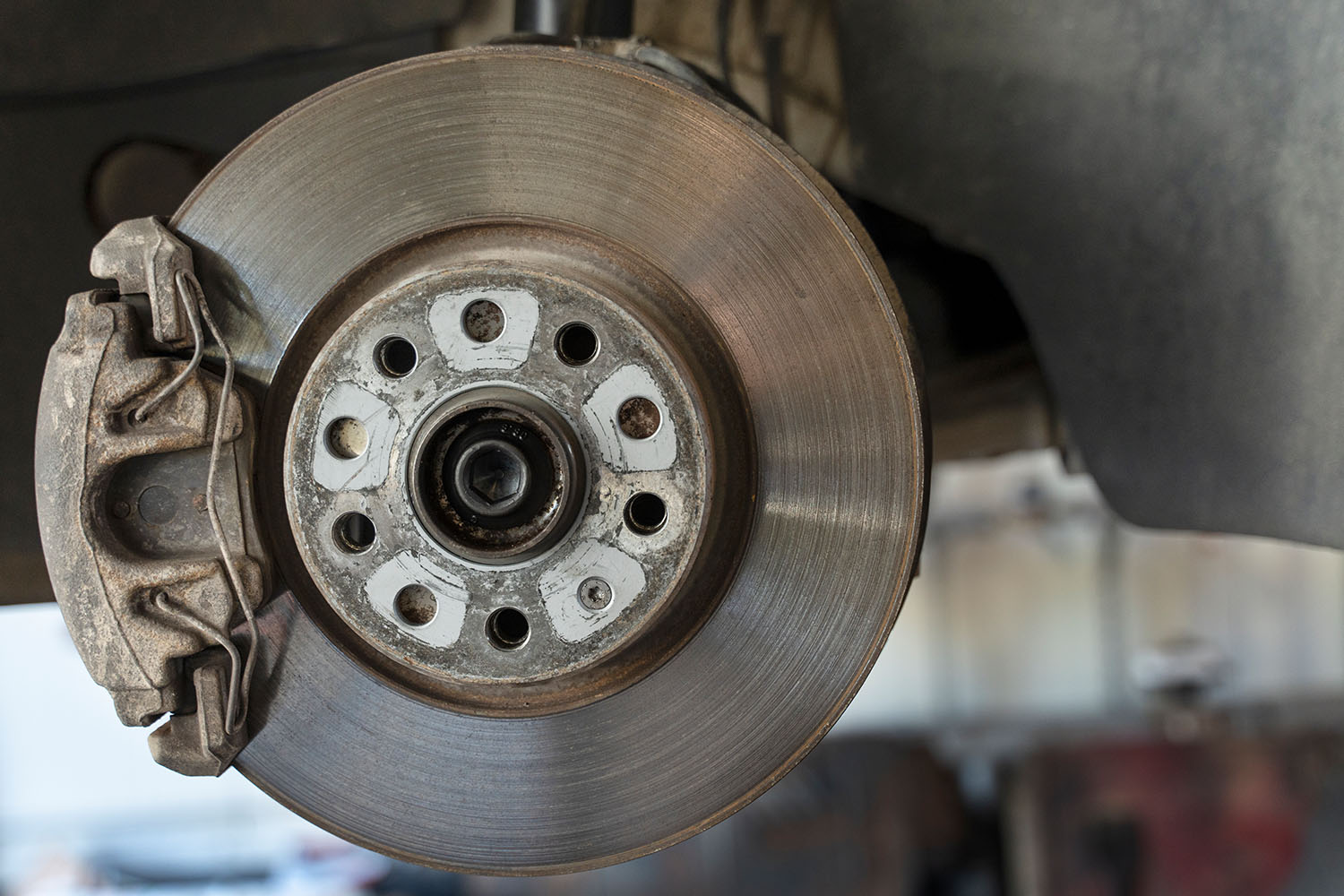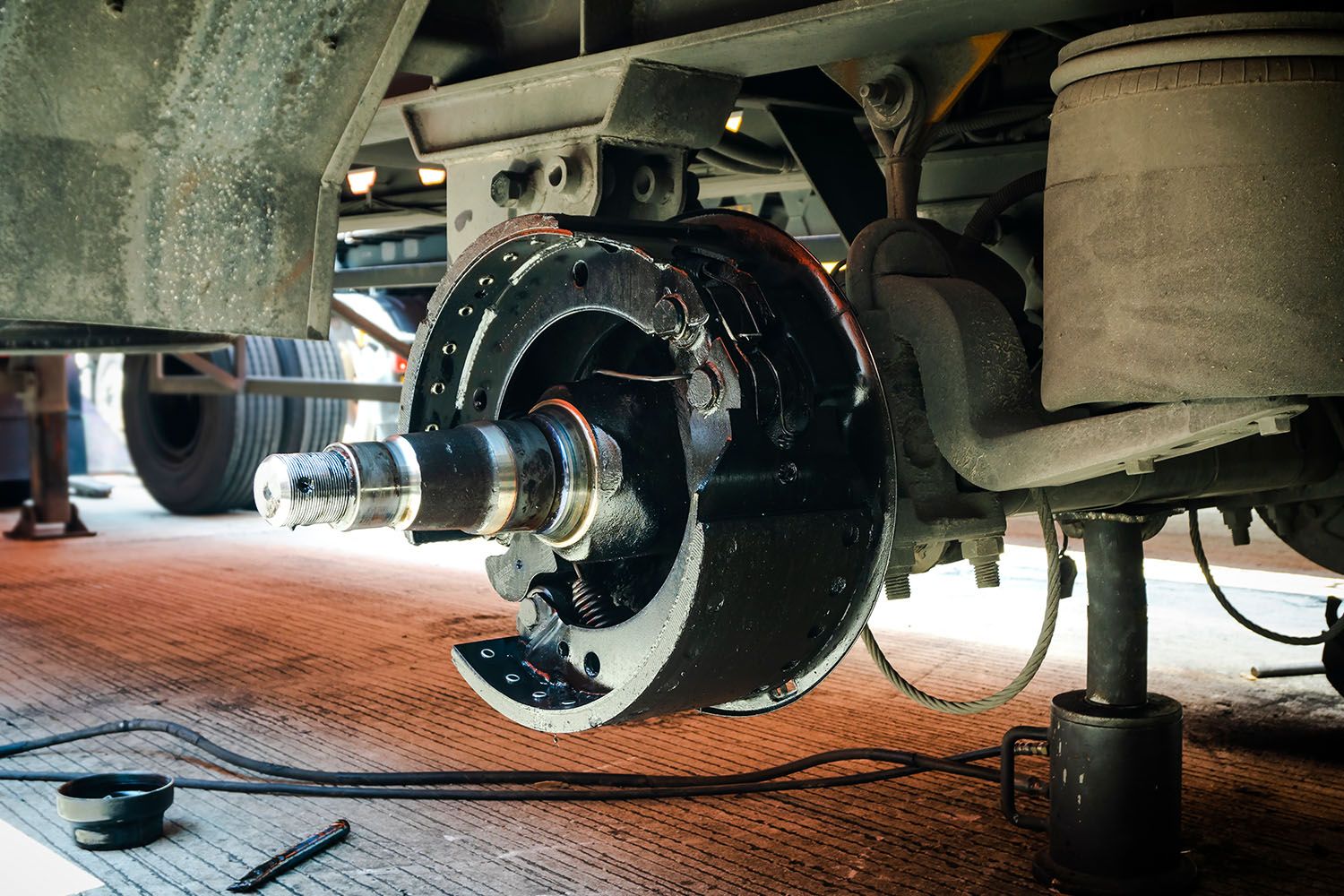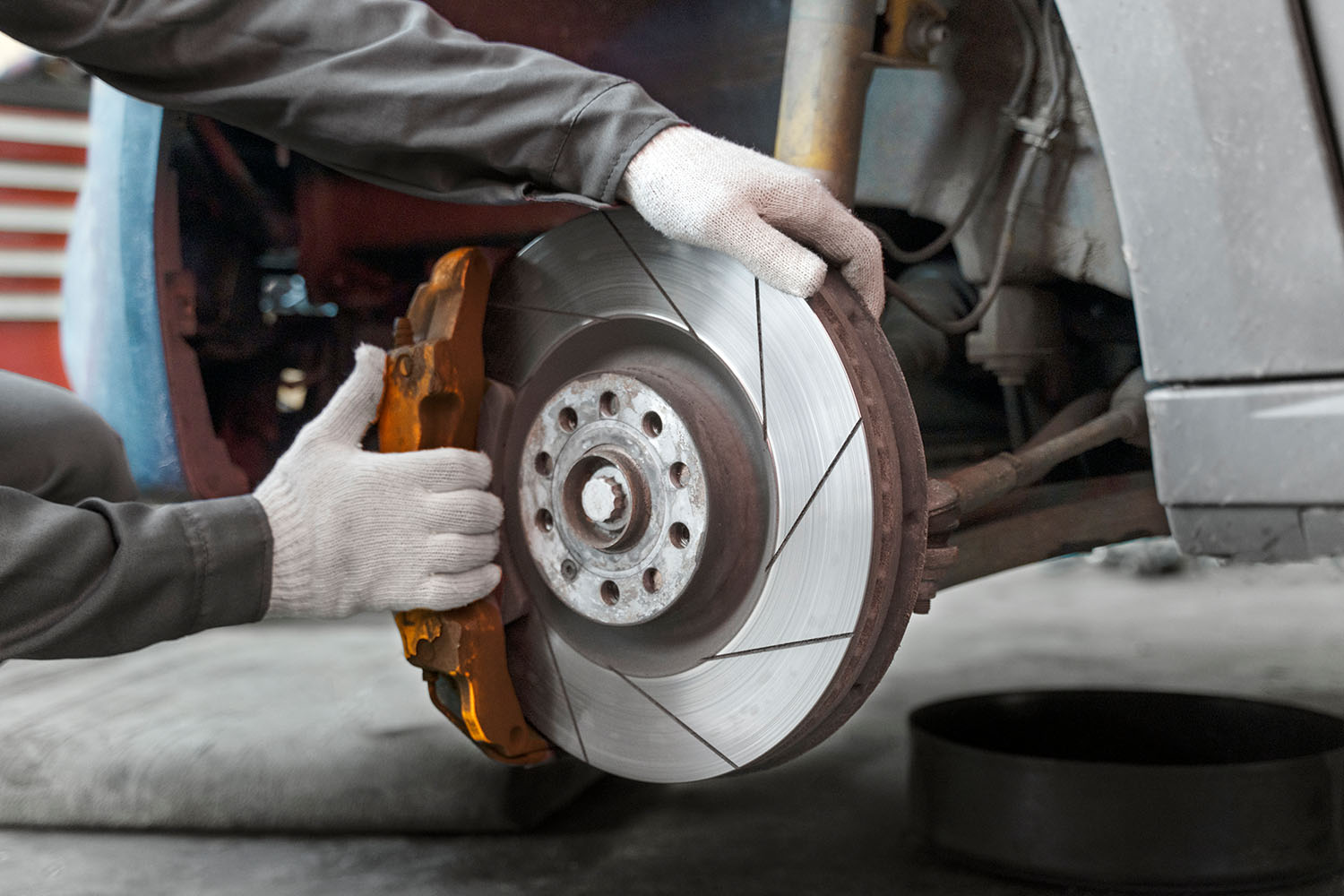You’re driving on a busy interstate when your trailer suddenly starts fishtailing, forcing you to make an emergency stop. This scary scenario is a direct result of neglected trailer axle maintenance. Regular maintenance of your trailer’s axles is essential to ensure safety, prevent costly repairs, and extend the lifespan of your trailer.
In this blog, Trailer Labs will explore the importance of trailer axle maintenance and resolve your worries about finding trailer axle repair near me. Let’s get started.
The Crucial Role of Trailer Axles

Trailer axles are the backbone of your trailer, playing a pivotal role in its functionality and safety. Here’s a breakdown of their key components and functions:
1. Bearings
These allow the wheels to rotate smoothly around the axle, reducing friction and wear. Properly lubricated bearings are essential for preventing overheating and failure.
2. Brakes
Axles are often equipped with braking systems that help control the trailer’s speed and ensure it stops safely. These can be electric, hydraulic, or air brakes, each requiring regular inspection and maintenance. [1]
3. Suspension
This system, which includes springs and shock absorbers, supports the trailer’s weight and provides stability by absorbing bumps and vibrations from the road. It ensures a smoother ride and prevents excessive wear on other components.
4. Weight Bearing
Trailer axles bear the entire weight of the trailer and its cargo. This load-bearing capacity is crucial for maintaining the trailer’s structural integrity and ensuring it can carry its intended payload safely.
5. Handling and Stability
The axles distribute the weight evenly across the trailer, influencing its handling and stability. Properly maintained axles ensure the trailer tracks straight and remains stable, reducing the risk of swaying or tipping, especially at high speeds or during sharp turns. [2]
Consequences of Neglecting Axle Maintenance

Neglecting the maintenance of your trailer’s axles can lead to severe consequences, affecting both safety and finances. Before looking for trailer axle repair near me, you should know the potential dangers and costs associated with axle failure:
1. Loss of Control While Towing:
Axle failure can cause the trailer to fishtail, sway uncontrollably, or even detach from the towing vehicle. This loss of control can lead to accidents, putting the driver and other road users at serious risk.
2. Damaged Cargo
A compromised axle can lead to uneven weight distribution and instability. The cargo can shift, get damaged, or be destroyed during transit, resulting in financial loss and potential delivery delays.
3. Personal Injury or Fatalities
Sudden axle failure can cause serious accidents. These accidents can lead to severe personal injuries or even fatalities, underscoring the critical importance of axle maintenance for ensuring the safety of all road users.
4. Expensive Repairs and Replacements
Neglecting regular maintenance can result in severe damage to the axles and other related components, requiring costly repairs or complete replacements. [3]
5. Increased Operational Downtime
Unplanned breakdowns lead to increased downtime, affecting productivity and potentially causing missed deadlines. The time spent waiting for trailer repair service or finding trailer repair near me can disrupt schedules and reduce the overall efficiency of your operations.
How To Maintain Trailer Axle?

Maintaining a trailer axle is crucial for ensuring the longevity and safety of your trailer. Here are the steps to properly maintain a trailer axle to enhance its life.
1. Inspect Regularly
Regularly inspect the trailer axle for any wear, damage, or rust. This involves checking the axle beam, leaf springs, and mounting hardware. Before going to a trailer repair shop, look for cracks, bends, or signs of corrosion. Regular inspections help catch potential issues early before they become significant problems.
2. Lubricate Bearings
Proper lubrication of the bearings is essential to reduce friction and prevent overheating. Use high-quality grease designed explicitly for trailer bearings. Lubricate the bearings at least once a year or more frequently if the trailer is used extensively.
3. Check Alignment
Ensure the trailer axle is properly aligned to prevent uneven tire wear and to improve handling. Misalignment can cause excessive wear on tires and strain on the axle components. If alignment issues are detected, a professional adjustment via finding trailer repair near me may be necessary.
4. Inspect and Tighten U-bolts
Check the U-bolts that secure the axle to the trailer. Ensure they are not loose, rusted, or damaged. Tighten them as necessary to the manufacturer’s specified torque settings.
U-bolts are critical in securing the axle to the trailer’s frame. [4]
5. Inspect Brakes
If your trailer has brakes, regularly inspect them for wear and proper function. This includes checking the brake pads or shoes, drums or rotors, and brake lines. Ensure the braking system is functioning correctly.
Conclusion
In conclusion, investing in regular trailer axle maintenance isn’t just about keeping your trailer running smoothly; it’s about safety, cost-effectiveness, and peace of mind. By following a consistent maintenance routine, you can prevent breakdowns, extend the lifespan of your axles and other components, and ensure the safe transport of your cargo.
Don’t let worn axles put your trailer and cargo at risk! Schedule your trailer axle maintenance appointment with Trailer Labs today! Our experienced technicians can inspect, lubricate, and repair your axles to ensure optimal performance and safety. Contact us for further details.
FAQs
1. What Is The Function Of The Trailer Axle?
The trailer axle is a vital component that supports the weight of the trailer and its cargo. It also plays a crucial role in keeping the trailer stable and aligned while towing. The axle accomplishes this by housing the wheels and bearings, which allows the wheels to rotate freely and distribute the weight load evenly.
2. What Are The Benefits Of The Axle?
Trailer axles are essential for several reasons. They enable the trailer to move freely by allowing the wheels to rotate. Axles also distribute weight load efficiently, preventing overloading on any single tire. Additionally, they enhance trailer stability and handling, ensuring a smooth ride.
References:

